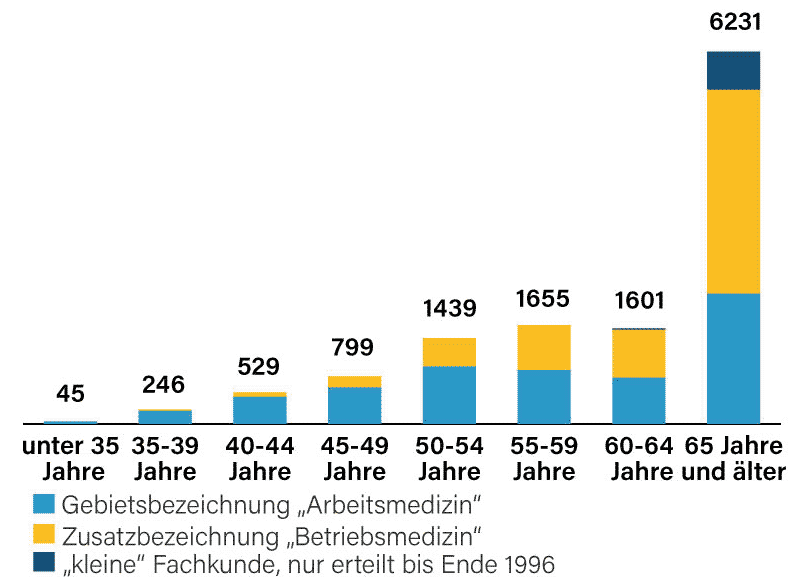Shortage of company doctors - action necessary!
There are too few company and occupational physicians for the companies and the company medical care of their employees. Action is needed to prevent this shortage from growing.

©AdobeStock Halfpoint
Increasing demand for company doctors in the companies
The increasing demand for occupational medical care is not matched by a sufficient number of specialists in occupational medicine. In some regions, despite intensive efforts, companies are unable to meet their obligation to appoint a company doctor, or can do so only with great difficulty. A study by the Federal Institute for Occupational Safety and Health (2014) shows that in ten years' time, only 50% of the care requirements for the basic occupational medical care prescribed (in accordance with DGUV Regulation 2) will be covered. One of the reasons for this is that of the approximately 12,400 specialists in occupational medicine in Germany (as at 31.12.2020), a good 64 % are already 60 years of age or older.
To address this problem, several measures need to be addressed.
Possible solutions to the shortage of company doctors
DGUV Regulation 2 needs to be adapted in various places. For example, the possibilities of the so-called employer model should be extended. The employer model enables employers to dispense, in whole or in part, with the otherwise required supervision by occupational safety specialists and company physicians by means of training in occupational safety and health issues. The possibility of participating in the entrepreneurial model should be extended to 50 employees for as many accident insurance institutions as possible. It must also be examined whether the 50-employee limit cannot be raised further for some accident insurance institutions and the sectors insured there. Provision should also be made in DGUV Regulation 2 for the involvement of other specialists (e.g. ergonomists, occupational hygienists, occupational psychologists, occupational therapists, physiotherapists, demographic advisors, sports scientists or health scientists).
The accident insurance institutions' sector-specific advisory services for small and medium-sized enterprises (SMEs) should be expanded. This can be done, for example, through centres of competence of the accident insurance institutions, which individual accident insurance institutions have already successfully established.
Finally, there is a need for exemption regulations for companies that have demonstrably made unsuccessful efforts to obtain occupational health capacities to fulfil their obligations under the Occupational Health and Safety Act to appoint a company doctor. It is not acceptable for companies to be fined up to €25,000 if it is objectively established that they were unable to fulfil their obligation to appoint a company doctor or that it was not possible for them to do so without disproportionate effort.
Further measures must also be taken to secure the next generation of occupational physicians. Occupational medicine must become more attractive to the next generation. There must also be a sufficient number of professorships again. The Federal Medical Association, the state medical associations and the relevant professional associations, the Association of German Company and Works Doctors (VDBW) and the German Society for Occupational and Environmental Medicine (DGAUM) are particularly called upon here.








